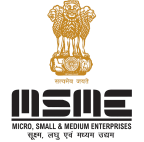Certificate in Ayurvedic Therapy
Syllabus for Certificate in Ayurvedic Therapy
Duration: 6 Months
Institution: Rajgor Health and Education Centre, Affiliated with Guru Kashi University
This course is designed to provide foundational knowledge and skills in Ayurvedic therapy, focusing on the principles of Ayurveda, traditional therapeutic techniques, and their practical applications to promote holistic health.
Course Structure
Module 1: Foundations of Ayurveda
- Introduction to Ayurveda:
- History and origin of Ayurveda
- Basic principles: Tridosha (Vata, Pitta, Kapha) and Panchamahabhuta theory
- Role of Ayurveda in modern healthcare
- Ayurvedic Anatomy and Physiology:
- Concept of Sharira (body), Manas (mind), and Atma (soul)
- Importance of Agni (digestive fire) and Ama (toxins)
- Understanding the Srotas (body channels)
Module 2: Ayurvedic Therapies and Techniques
- Therapeutic Principles:
- Concepts of Shodhana (detoxification) and Shamana (pacification) therapies
- Importance of Dinacharya (daily routine) and Ritucharya (seasonal routine)
- Panchakarma Basics:
- Overview of the five detoxification therapies: Vamana, Virechana, Basti, Nasya, and Raktamokshana
- Preparation and post-therapy care
- Common Ayurvedic Therapies:
- Abhyanga (therapeutic oil massage)
- Shirodhara (oil dripping therapy)
- Pizhichil (medicated oil bath)
- Swedana (herbal steam therapy)
Module 3: Ayurvedic Herbs and Medicines
- Introduction to Ayurvedic Pharmacology (Dravyaguna Vidya):
- Classification of herbs and their properties
- Preparation of herbal formulations: powders, decoctions, and oils
- Commonly Used Herbs:
- Turmeric, Ashwagandha, Triphala, Brahmi, and others
- Their therapeutic uses and benefits
- Diet and Nutrition in Ayurveda:
- Ahara (diet) as medicine
- Guidelines for a balanced Ayurvedic diet
- Foods for different Dosha types
Module 4: Practical Applications of Ayurvedic Therapy
- Hands-On Training:
- Techniques for performing oil massages and therapies
- Preparation of herbal oils, pastes, and decoctions
- Demonstration of steam and heat therapies
- Personalized Therapy:
- Assessment of Prakriti (body constitution)
- Designing therapies based on individual needs
Module 5: Ayurvedic Lifestyle Management
- Holistic Health Practices:
- Role of yoga and meditation in Ayurveda
- Stress management techniques
- Enhancing immunity through Ayurvedic practices
- Preventive Healthcare:
- Ayurvedic guidelines for seasonal transitions
- Daily self-care rituals for health and well-being
Module 6: Ethics and Professional Practice
- Code of Conduct for Ayurvedic Practitioners:
- Ethical guidelines in Ayurvedic therapy
- Importance of patient confidentiality
- Building a Practice:
- Setting up an Ayurvedic therapy practice
- Communication and rapport building with clients
Assessment and Certification
- Theory Examination:
- Multiple-choice and descriptive questions on Ayurvedic principles and therapies
- Practical Examination:
- Demonstration of Ayurvedic techniques
- Preparation of herbal formulations
- Final Certification:
- Successful completion of theoretical and practical assessments
Learning Outcomes
- Comprehensive understanding of Ayurvedic principles and therapies.
- Proficiency in performing Ayurvedic therapeutic techniques like massages and detoxification.
- Ability to assess body constitution (Prakriti) and recommend personalized therapies.
- Skills to promote holistic health through Ayurvedic lifestyle practices.
This course equips learners with the foundational skills and knowledge to work as Ayurvedic therapy practitioners or advance their studies in Ayurveda.
Certification
Upon successful completion of the course, participants will receive a Certificate in Ayurvedic Therapy from Rajgor Health and Education Centre, affiliated with Guru Kashi University.

.jpg)
.jpg)
.jpg)
.jpg)
.jpg)
.jpg)
.jpg)
.jpg)
.jpg)
.jpg)
.jpg)
.jpg)